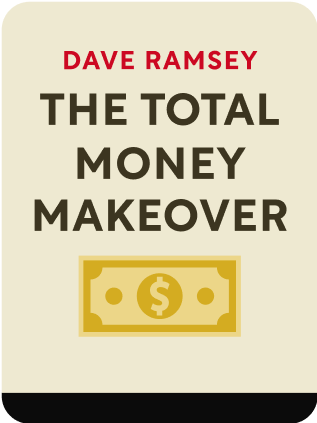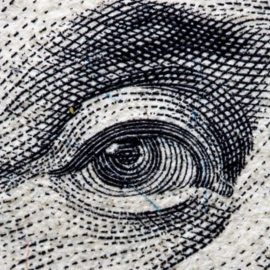

This article is an excerpt from the Shortform book guide to "The Total Money Makeover" by Dave Ramsey. Shortform has the world's best summaries and analyses of books you should be reading.
Like this article? Sign up for a free trial here .
What is financial denial? How is financial ignorance stopping you from taking control of your finances?
Financial denial is when a person does not acknowledge how they ended up in their current situation. Overcoming this denial and financial ignorance is the first step to financial health.
Read on to see how overcoming financial denial helps position you to become debt-free.
The Obstacle of Financial Denial
Total Money Makeover success first requires understanding the five obstacles that could hinder you: financial denial, debt myths, money myths, financial ignorance, and desire for approval. These hurdles stem in large part from what you’ve been taught by society about money. The next few chapters examine each of these obstacles.
The first obstacle is financial denial. Achieving financial fitness is somewhat like trying to lose weight and improve physical fitness. While this requires intense focus on your goal of resetting your eating or spending habits, you’ll have a tendency initially to downplay just how out of shape you are.
Most people are in denial about the state of their finances. You might tell yourself that maybe things aren’t so bad—maybe you’re no worse off than the average person. The unfortunate truth is that most people have financial problems—that counts as average in today’s society, the way being overweight has become average.
You get a lot of social reinforcement for financial ignorance. Financial institutions and retail stores want to give you credit cards or increase your credit limit, so you take it as a sign you’re doing all right financially. Banks are willing to loan you money for the bigger house or new car you want. If you can afford the payments on something, you feel you can afford to buy it.
But this thinking keeps you in average financial shape (moderately in debt) at best. The Total Money Makeover program is about being better than average: it’s about becoming debt-free.
Overcoming Your Denial
There are two ways to break out of financial denial: you can wait for a crisis or you can proactively choose change.
1) Wait for a crisis: While you can’t argue with the scale when you’re trying to lose weight, you can fake financial health for a while (others will tell you you look great), but eventually your habits catch up with you. A wake-up call can be losing your job or business or suffering a major unexpected expense or health problem. Or, problems or debts may accumulate gradually until they reach a critical mass. Suddenly you can’t pay your debts or meet living expenses, and you can no longer deny that you’ve been skating on thin ice.
Sara and John got such a wake-up call. They felt financially secure with two incomes totaling $75,000 and “typical” debts of student loans, a car loan, and $5,000 owed on credit cards. So they built a new home, but shortly after they moved in, Sara was laid off. Upon losing half their income, they couldn’t deny their financial state and were forced to change their spending habits.
2) Choose to change: The alternative to waiting for a crisis is to look in the mirror, acknowledge your reality, and choose to change. Hopefully, this book will motivate you to want better-than-average financial health and to meet the makeover challenge.
Once you overcome financial denial, you can begin to change your financial life.

———End of Preview———
Like what you just read? Read the rest of the world's best book summary and analysis of Dave Ramsey's "The Total Money Makeover" at Shortform .
Here's what you'll find in our full The Total Money Makeover summary :
- The 7 steps to achieving financial stability (you'll love #7)
- A fool-proof plan for becoming debt-free
- How myths about debt and money are crippling your financial health






